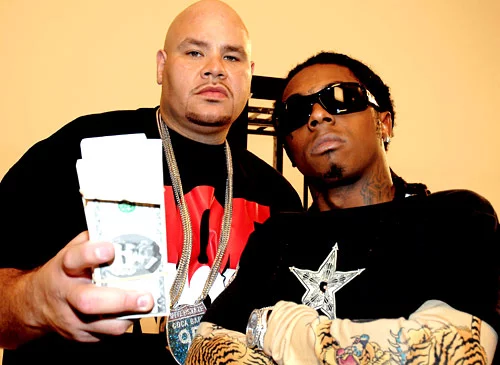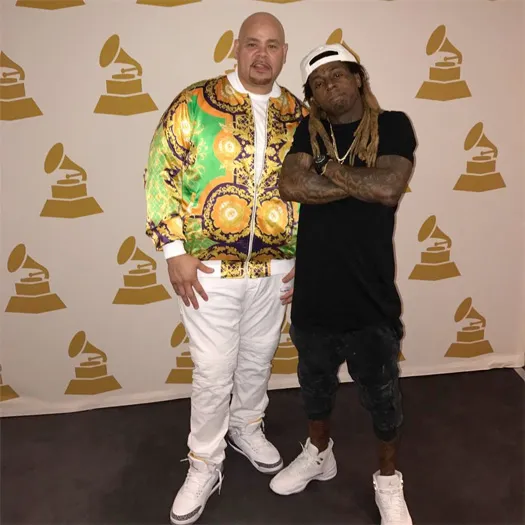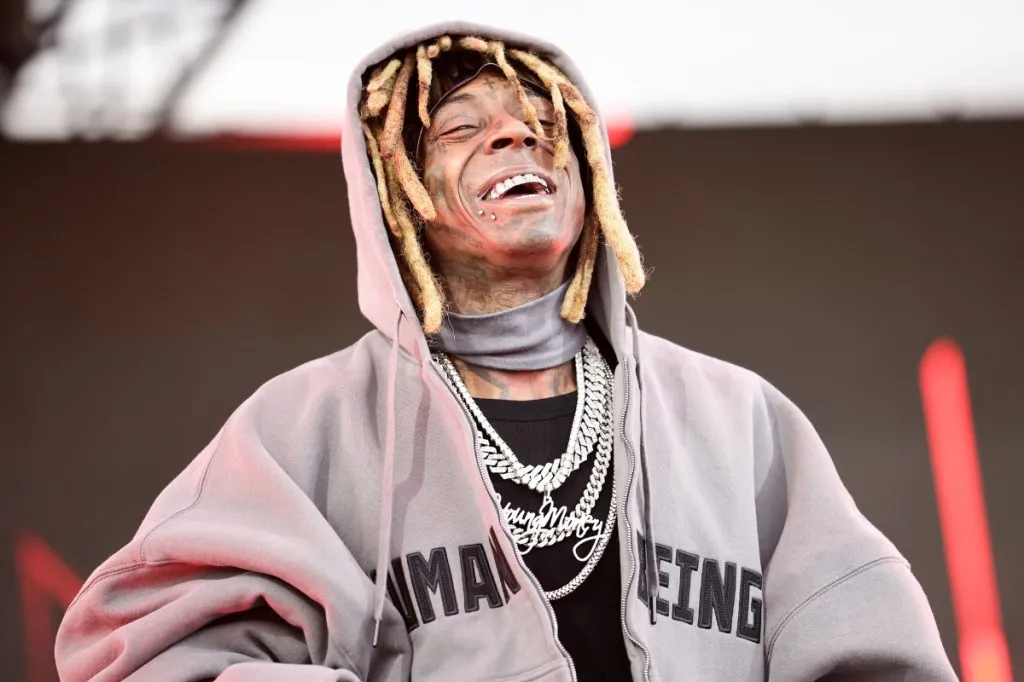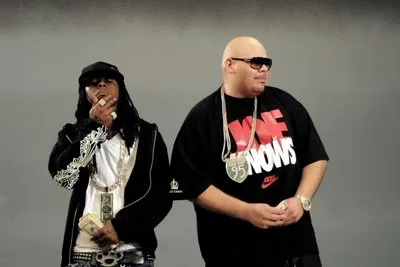

The Classic Hit ‘We Taking Over’ Hides a Painful Secret: Fat Joe Was Overshadowed by Lil Wayne Right on His Own Stage
The Unexpected Confession That Shook Hip Hop Fans
When it comes to hip hop legends, few artists are as brutally honest about their wins and losses as Fat Joe. Known for his Bronx roots, his longevity in the rap game, and his ability to craft timeless records, Joe has always carried himself like a veteran who’s been there and done it all. But recently, in an interview that immediately set social media on fire, Fat Joe revealed something that left both old-school and new-school rap fans buzzing: he genuinely believed he had the best verse on the DJ Khaled classic “We Takin’ Over”—until Lil Wayne came in and delivered a verse so devastating that Joe admitted he walked out of the studio “knowing he was ruined.”
This confession is more than just hip hop trivia. It’s a rare look behind the curtain of how even seasoned rap icons feel when they’re faced with greatness. And when you’re talking about Lil Wayne in his prime era, you’re talking about a lyrical monster who was rewriting the rules of rap one feature at a time.
Setting the Stage: DJ Khaled’s “We Takin’ Over”
Released in 2007, “We Takin’ Over” was more than just another posse cut—it was a statement. DJ Khaled assembled an Avengers-style lineup: Akon, T.I., Rick Ross, Fat Joe, Birdman, and Lil Wayne. The beat, produced by Danja, had all the bombast of a stadium anthem, and every rapper came hungry.

Fat Joe, at that point, had already delivered multiple hits (“Lean Back” being the crown jewel), and when he laid down his verse for Khaled’s track, he walked away thinking it was one of the strongest in his career. In his own words, he felt untouchable. That is, until Lil Wayne—still climbing toward the peak that would become Tha Carter III—laid down a verse that would become not only the highlight of the song but one of the defining verses of his career.
Fat Joe’s Brutal Honesty
What makes Joe’s admission so powerful is the candor. In an industry where rappers constantly declare themselves the greatest, Joe flipped the script by admitting defeat. He confessed that when he heard Wayne’s verse—complete with razor-sharp metaphors, mind-bending wordplay, and that unshakable delivery—he realized immediately that his own work had been overshadowed.
Joe described it vividly: he said he walked out of the studio “knowing he had been destroyed.” This wasn’t playful exaggeration—it was the reality of sharing a track with someone who, at that moment, was operating on a completely different frequency.
Why Lil Wayne’s Verse Hit Harder
Fans still debate what makes Lil Wayne’s verse on “We Takin’ Over” so special. Some point to the raw energy, others to the way Wayne stacked metaphor upon metaphor with an effortless swagger that felt untouchable. But what’s undeniable is the cultural impact it had.
Back in the mid-to-late 2000s, Wayne was in his infamous “mixtape era”, a period where he was releasing music at an impossible rate, remixing every beat under the sun, and making sure no rapper could match his consistency or creativity. By the time “We Takin’ Over” dropped, Wayne was already being whispered about as the “Best Rapper Alive.” That verse didn’t just solidify the claim—it turned it into a warning shot for anyone standing in his way.
The Internet Reacts—Years Later
Even though the song is nearly two decades old, Joe’s confession reignited the debate online. Fans immediately flooded Twitter, TikTok, and Reddit with their takes. Many agreed with Joe, calling Wayne’s verse the undisputed highlight of the track. Others applauded Joe for having the humility to admit what so many rappers would never dare to say.
One fan wrote: “This is why Fat Joe is real. He knows when someone else blacked out on a track. Wayne ate that whole record.” Another chimed in: “Wayne in 2007 was a different animal. Nobody could touch him.”
The viral nature of Joe’s confession proves one thing: hip hop fans never forget. Even verses from almost 20 years ago can spark passionate debate when the right story surfaces.

The Legacy of “We Takin’ Over”
To understand why this moment still resonates, you have to understand the place of “We Takin’ Over” in hip hop history. It wasn’t just another hit—it was a blueprint for how DJ Khaled would build his empire. The song’s success showed that Khaled could assemble megastars on one track and create cultural moments.
And while every artist delivered on the record, it was Lil Wayne’s performance that stood out as the turning point. After this verse, Wayne stopped being just one of the hottest rappers in the game—he became the benchmark.
Fat Joe vs. Lil Wayne: A Study in Contrast
What’s fascinating about this story is how it highlights two very different career arcs. Fat Joe has always thrived as a hitmaker, collaborator, and respected veteran of the culture. He’s the kind of artist who adapts, survives, and continues to be relevant across decades.
Lil Wayne, on the other hand, in 2007 was not just surviving—he was dominating. Every verse was a headline, every mixtape was a moment, and every feature felt like a gift and a threat at the same time. When you put those energies together on the same track, it was inevitable that sparks would fly.
And Fat Joe’s willingness to admit that Wayne outshined him doesn’t diminish Joe’s legacy—it actually enhances it. It proves that behind the bravado, rappers know when they’ve just witnessed greatness firsthand.
Why This Story Still Matters in 2025
So why are we still talking about this nearly 20 years later? Because in the world of hip hop, moments of honesty are rare. Fans are used to beef, braggadocio, and endless claims of supremacy. But when an artist pulls back the curtain and admits vulnerability—especially about being overshadowed—it becomes instantly memorable.
For younger fans discovering “We Takin’ Over” for the first time, Joe’s confession is like a guidebook: this is the verse you should pay attention to. For older fans, it’s a nostalgic reminder of when Wayne was on his unbeatable run. And for the culture as a whole, it’s a reminder that even legends can acknowledge when another legend steals the spotlight.

The Bigger Picture: What Makes a Verse Legendary?
This story also sparks a larger question: what actually makes a verse legendary? Is it technical skill, cultural impact, or the way it makes listeners feel? Wayne’s verse checks all three boxes. It’s technically sharp, it changed the trajectory of his career, and it still gives fans goosebumps when they hear it today.
Fat Joe’s admission is proof that even within the industry, rappers know when a verse transcends competition and becomes part of history. It’s not just about who had the better rhyme—it’s about who shifted the energy of the entire record.
Conclusion: A Moment That Will Never Be Forgotten
In the end, Fat Joe’s confession isn’t about defeat—it’s about recognition. It’s about acknowledging that on one of the most iconic posse cuts of the 2000s, Lil Wayne delivered a verse so powerful that it silenced the room and left even seasoned veterans in awe.
For fans, this story is a reminder of why we fell in love with hip hop in the first place. It’s about competition, humility, and the pursuit of greatness. It’s about those rare moments where one verse can change everything.
And if there’s one thing we can take away from Joe’s honesty, it’s this: true legends aren’t afraid to admit when they’ve witnessed something greater.


















